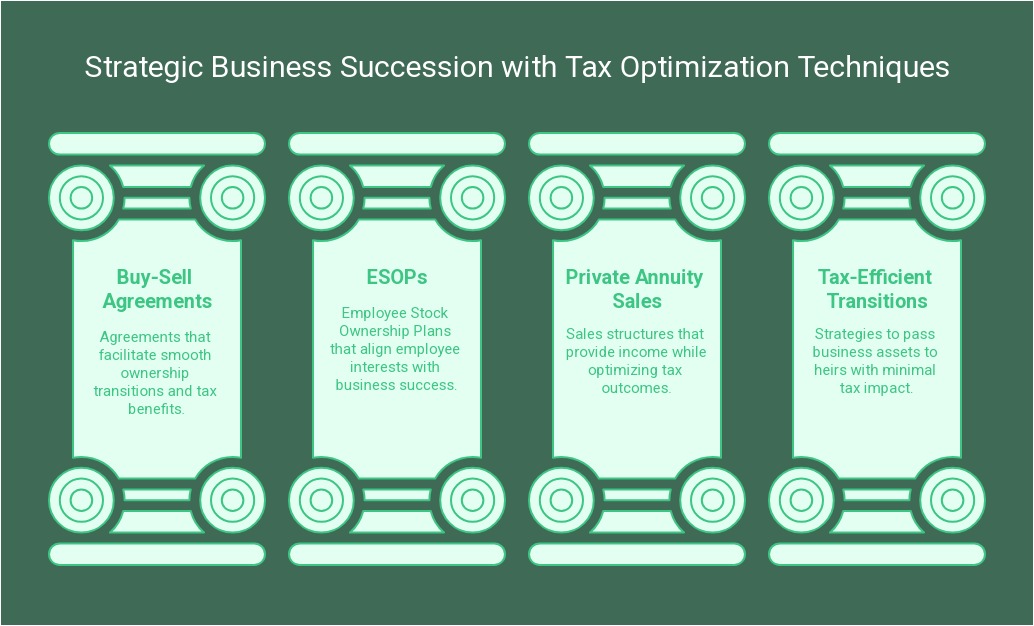Discover the best tax-efficient estate planning strategies for high-net-worth individuals. Learn how to minimize estate taxes, protect generational wealth, and structure trusts to ensure smooth wealth transfer.

Tax-Efficient Estate Planning Strategies for High-Net-Worth Individuals & Families
Effective tax-efficient estate planning strategies for high-net-worth individuals help minimize estate taxes, maximize wealth protection, and ensure a seamless financial legacy for future generations.
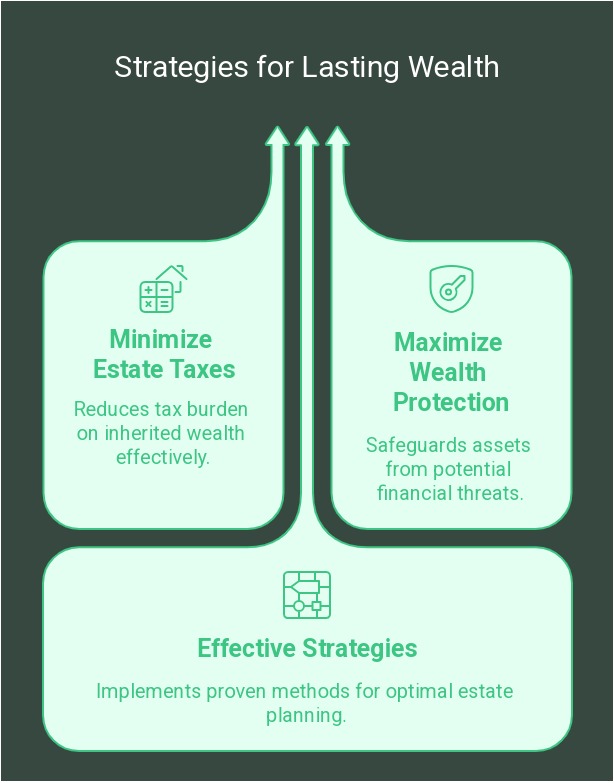
Why Estate Planning is Critical for High-Net-Worth Individuals & Families
Estate planning is not just about writing a will—it’s about ensuring your wealth stays in your family and out of the hands of the IRS. High-net-worth individuals risk losing up to 40% of their estate to taxes if they fail to structure their wealth properly.
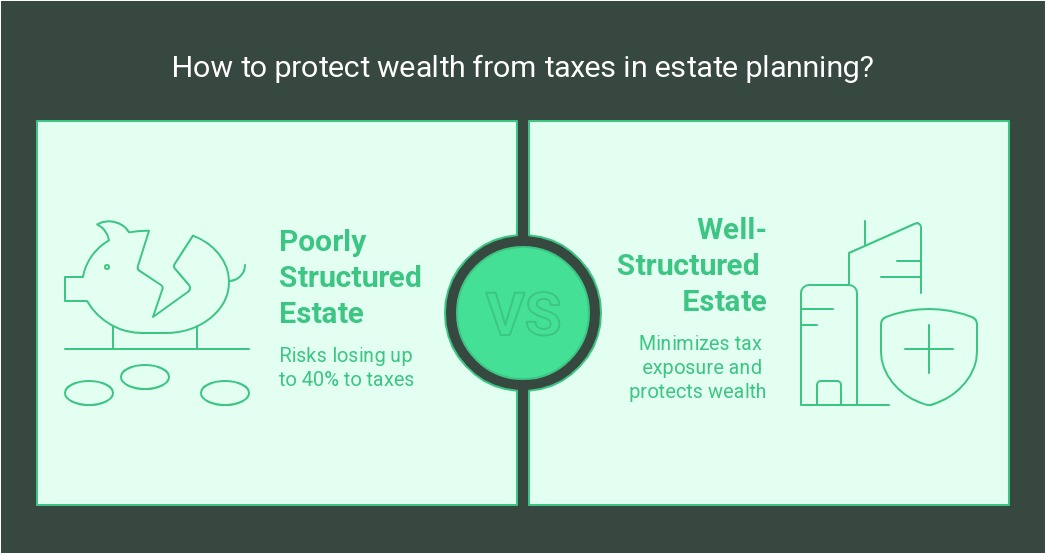
Estate tax laws are complex and constantly evolving, making it essential to have a structured, tax-efficient estate plan that ensures your wealth is transferred efficiently, legally, and with minimal tax exposure.
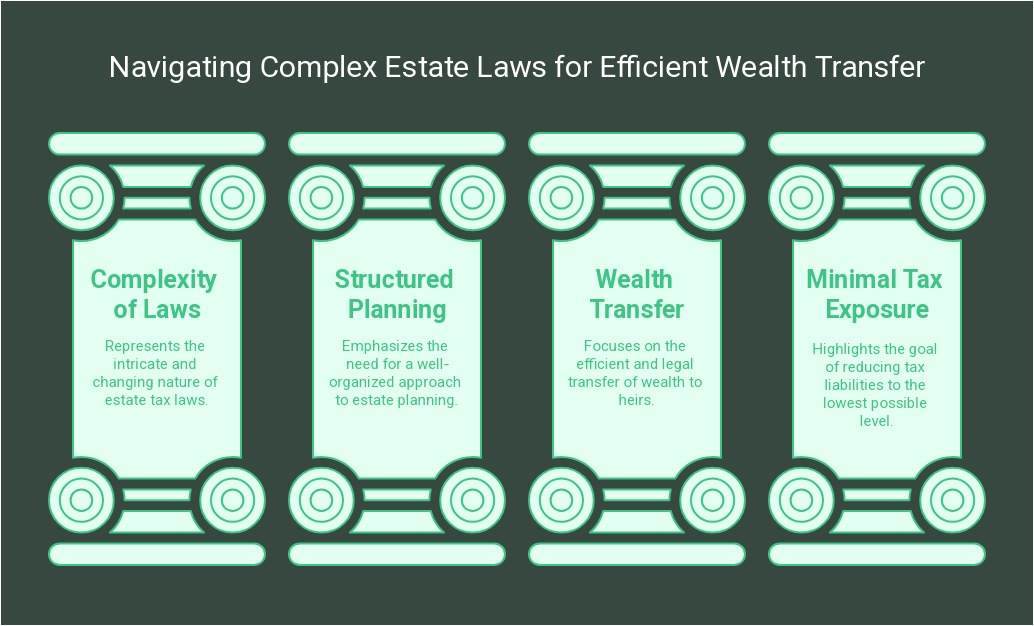
The Cost of Poor Estate Planning: Why Most Families Lose Millions
The Government is Taking a Large Portion of Your Wealth
Estate taxes can claim up to 40% of your assets, meaning nearly half of your wealth could go to the IRS instead of your heirs.
Without proper tax-efficient estate planning, your family may be forced to sell assets at a loss to cover tax liabilities.
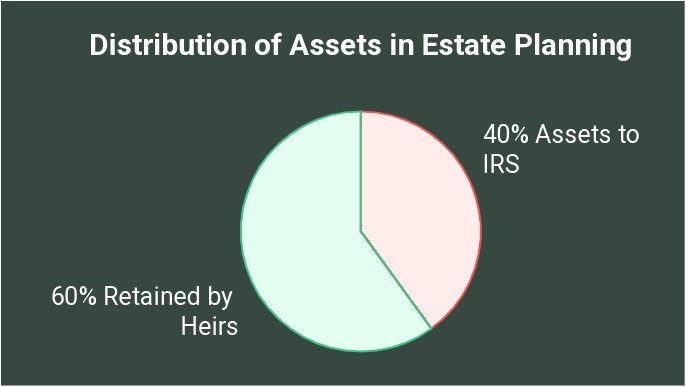
Legal Battles & Probate Can Drain Your Estate
Without structured trusts and asset protection, heirs can face years of legal disputes, probate costs, and financial instability.
Probate fees, attorney costs, and creditor claims can significantly reduce the value of your estate.
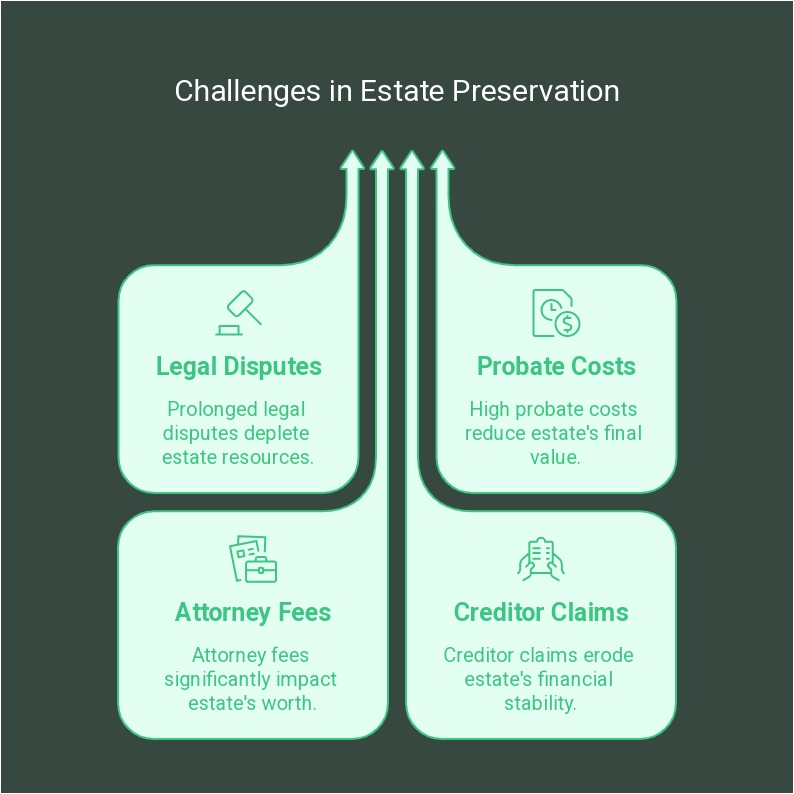
A Simple Will is Not Enough
A will only dictates asset distribution—it does NOT reduce taxes or protect against legal disputes.
Trusts, life insurance planning, and legal asset protection are essential for preserving and maximizing generational wealth.
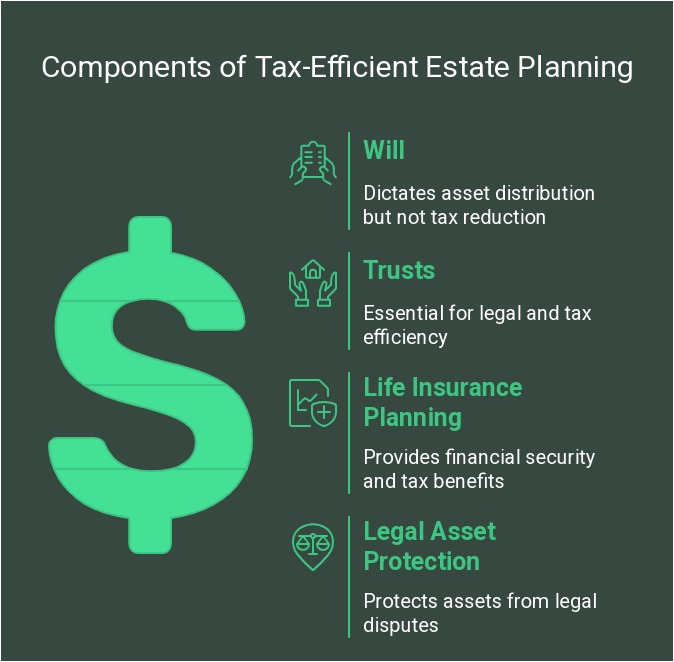
Proven Tax-Efficient Estate Planning Strategies to Reduce Estate Taxes
Leverage Irrevocable Life Insurance Trusts (ILITs)
An ILIT keeps life insurance proceeds outside of your taxable estate, ensuring that your beneficiaries receive the full payout tax-free.
Using ILITs with premium financing allows high-net-worth individuals to secure large life insurance policies without affecting liquidity.
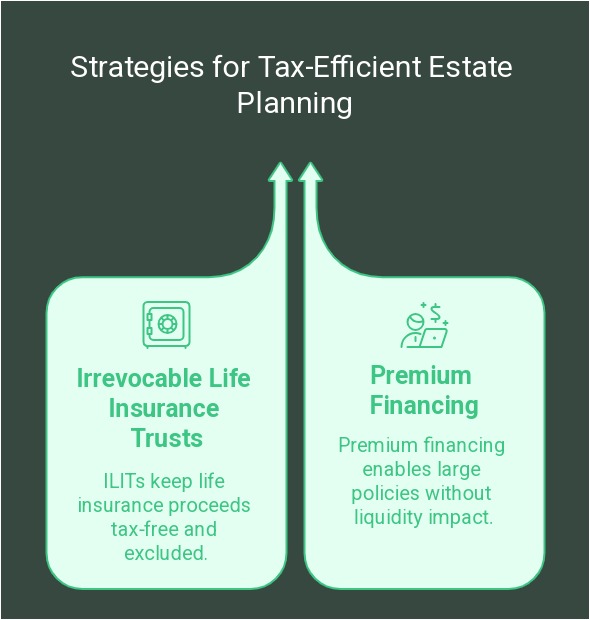
Use Dynasty Trusts for Multi-Generational Wealth Transfer
Dynasty Trusts allow your heirs to inherit assets without triggering estate taxes for multiple generations.
Assets inside a properly structured Dynasty Trust can continue to grow tax-free while protecting against lawsuits and creditors.
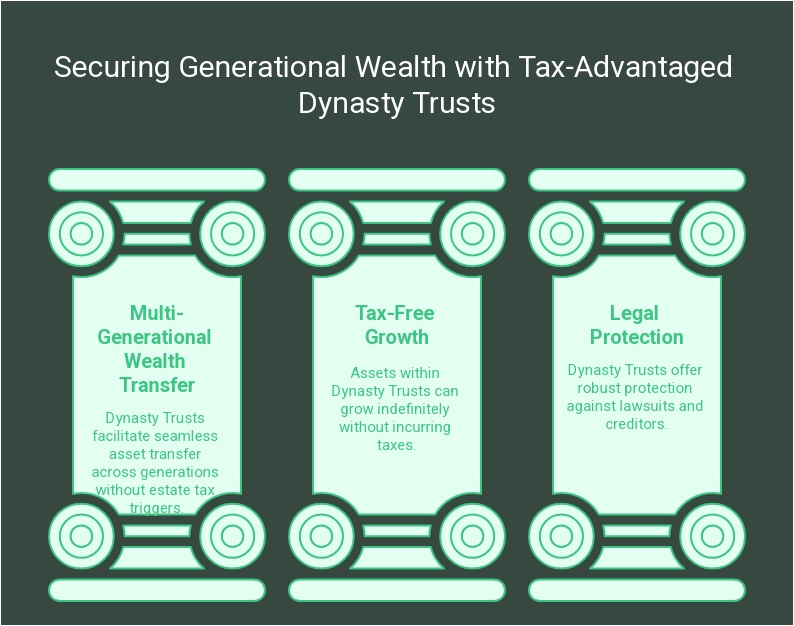
Establish Grantor Retained Annuity Trusts (GRATs)
GRATs allow individuals to transfer wealth to heirs while minimizing gift and estate taxes.
The value of the estate is frozen, meaning that appreciation of assets inside the trust is passed to heirs tax-free.
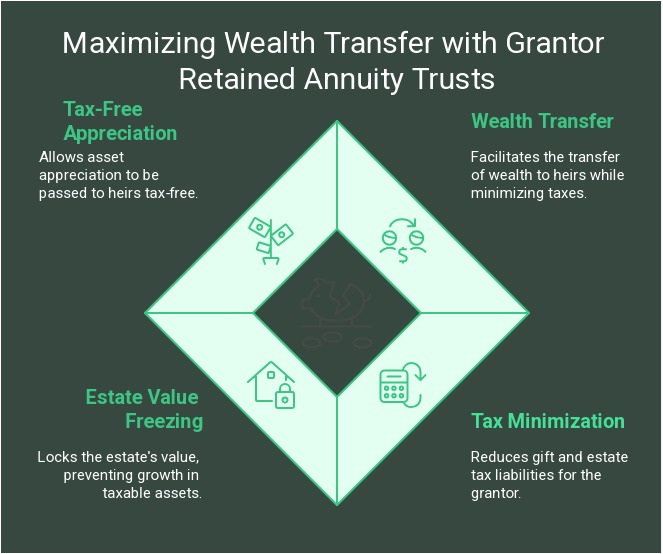
Utilize Charitable Remainder Trusts (CRTs) for Tax-Free Growth
Charitable Remainder Trusts reduce estate taxes by donating a portion of assets to charity while providing an income stream for beneficiaries.
Highly effective for real estate investors & business owners looking for tax-efficient philanthropic giving.
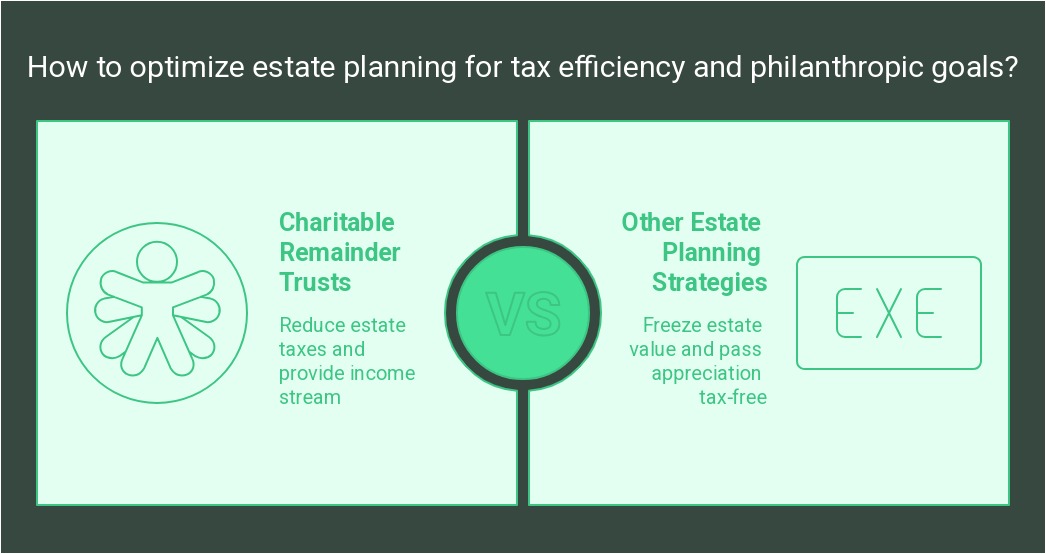
Implement Business Succession Planning & Tax Optimization
Business owners can avoid estate taxes by using buy-sell agreements, ESOPs, and private annuity sales.
Family business owners can structure tax-efficient transitions to heirs while minimizing capital gains tax.
